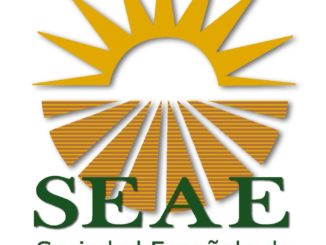
A critical briefing note on rural development and territorial cohesion in the new CAP has been issued by Pr. Van der Ploeg, Wageningen, for members of the Committee on Agriculture and Rural Developement of the European Parliament (Comagri). This note stresses the strategic importance of Pillar 2 of the CAP as a cohesion policy. It pays special attention to the way rural development might help to address the adverse effects of the economic crisis on rural areas, and the possibilities of overcoming problems that threaten the legitimacy of rural development policy.
The critical analysis made by Pr. Van der Ploeg is not so far away from the paradigm shift and the rural renaissance demanded by ARC 2020 network. So what are the keys messages he sent to MEPs?
1. While many top level talks on CAP reform are driven by direct aid and EU money issues, this note reminds us that rural development regulation cannot be considered as an isolated policy, since it could have strong connections with the Common strategic framework (so with other EU policies) and with the European Innovation Partnership.
2. Rural development (RD) is not only a EU political project, but mainly a large grassroots movement grounded at local level, through family farms and rural networks that create income and employment opportunities. Considering rural development as a set of responses to the crisis, he recalls that the multifunctionnality of agriculture must be at the core of rural development processes.
3. He invites a re-definition of ‘competitiveness’. It ‘serves to transfer a repertoire of measures from the previous situation to the new one – even if these measures are inappropriate to the new situation‘. It means that “competitiveness needs to be replaced by a ‘resilience’ objective because the ‘dominant model for farm enterprises can no longer be taken as reliable guide for strenghtening European agriculture”. Reversely, a resilient farm is more self-sufficient regarding the factors of production: labour, land and mainly family-based captital, feed and energy for animals produced on farms, pluriactive jobs facilitate social engagement in social networks and local food chains.
4. He issues a warning regarding the inefficient effects that certain measures proposed in the RD regulation could have, including ‘risk instruments’:
“if income stabilization tools and financial compensation for economic losses resulting from animal and plant diseases are available, there is a potential danger that some groups of agricultural entrepreneurs will further tune the organization and development of their farms towards attractive, but highly risky opportunities associated with the main commodity markets, rather than developing solid fall-back positions. They will be tempted to do so because (part of) the risk will be covered by public funds. Thus the RDR would induce ‘moral hazard’, i.e. stimulate farmers to engage in risky behaviour with the tax payer being the one who pays the bill if things go wrong”.
5. He calls that RD programs should give preference to collective and territorial co-operatives approaches over individual measures, thus significantly reducing the administrative burden linked with many current rural development actions. The simplification of the CAP can come from collective intelligence.
Read the briefing note here: European Parliament’s Committee on Agriculture and Rural Development Briefing (PDF)





